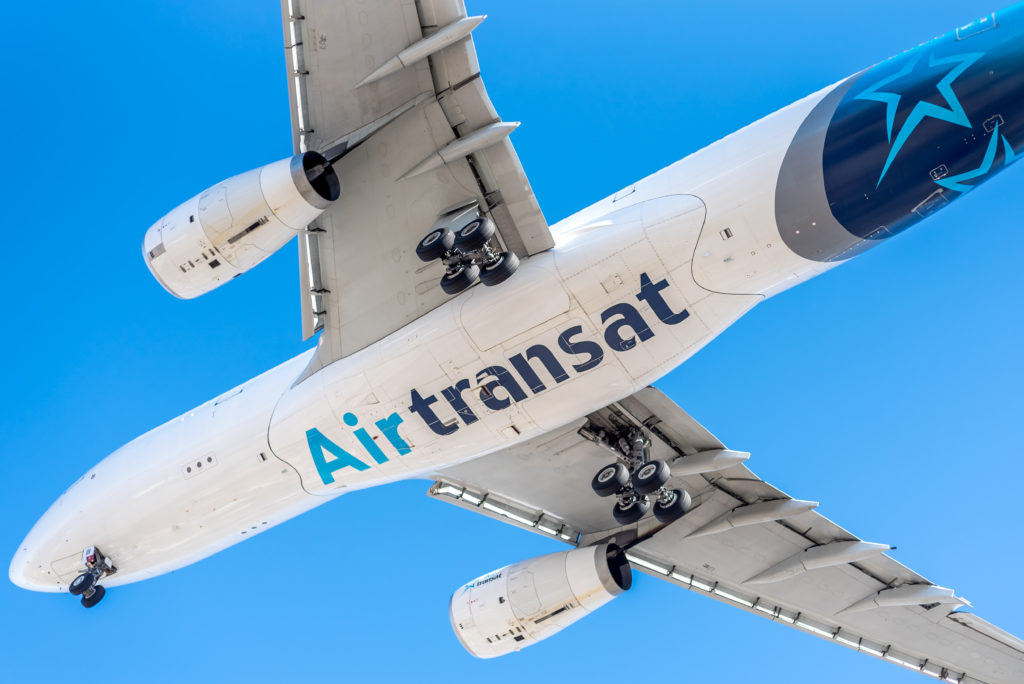Estimated reading time 5 minutes, 32 seconds.
British-based Thomas Cook Group PLC’s liquidation left hundreds of thousands of customers stranded in September, but Transat AT Inc. is emphasizing that there won’t be any immediate impact on its vacation packages.

The Montreal-based tour operator played down the effects of the early dissolution of a seven-year deal to swap aircraft on a seasonal basis with Thomas Cook.
The arrangement, signed in October 2017, worked well in the early going, with Thomas Cook agreeing to send between four and 14 narrow-body Airbus A321s in the winter to Transat’s airline unit, Air Transat.
Air Transat had been expecting “no less than seven A321s this winter, as provided in the initial agreement,” said Christophe Hennebelle, Transat’s vice-president of Human Resources and Corporate Affairs.
While the partnership has collapsed, Air Transat is optimistic about ensuring a smooth experience for Canadian travellers flying to sun destinations such as Mexico and the Caribbean.
Hennebelle said in an email that despite the demise of Thomas Cook, “there is no immediate impact whatsoever on our operations.”
Air Transat officials “are confident that there will be no disturbances for our clients,” he added.
Under the now-lapsed partnership for the winter travel period, Air Transat agreed to lease one to five wide-body Airbus A330s to Thomas Cook.
“We are obviously very saddened to see such a great company as Thomas Cook collapse, and our heart goes out to them, their clients and their employees,” said Hennebelle.
Industry observers are watching for when Air Canada’s planned $720-million acquisition of Transat might be completed. The purchase could close by mid-2020, subject to conditions such as approval from Transport Canada and the federal Competition Bureau. But the abrupt end to the aircraft-swapping deal with Thomas Cook isn’t expected to pose any lingering concern for the Air Canada-Transat transaction.
Peter Fankhauser, chief executive of debt-laden Thomas Cook, issued a statement to express his disappointment at the inability to resolve the financial troubles.
“This marks a deeply sad day for the company which pioneered package holidays and made travel possible for millions of people around the world,” he said on Sept. 23.
Fankhauser also apologized for the hardships ahead for 21,000 employees at the once-venerable and now-insolvent Thomas Cook, whose travel company roots in Britain date back to train excursions in 1841.
Condor Flugdienst, a carrier based in Germany that had been flying on behalf of Thomas Cook, is still offering flights to Canada through its own website. While Condor suspended its operations in late September for customers of Thomas Cook, the long-term impact is unclear. Condor sought to weather the financial storm, helped by a six-month bridge loan from the German government.
Over the past 20 years, consumers have been shifting away from visiting storefront travel agencies and instead increasingly booking vacations online, said Robert Kokonis, president of airline consulting firm AirTrav Inc.
“It was a two-fold punch against Thomas Cook,” said Kokonis in a phone interview. “It was the rise of online travel agencies like Expedia and also the rapid growth of low-cost carriers like Ryanair, EasyJet, Wizz Air and Norwegian.”
The ascent of low-cost carriers enabled the general travelling public to tap into cheap flights, said Kokonis.
“Either through online travel agencies or through the airlines’ websites themselves, it made it really easy for travellers to decide, ‘We don’t want a prepackaged product.’ The evolution away from prepackaged products started in the early 2000s,” he said. “The traditional tour operators like Thomas Cook were slow to evolve their business models.”
Marc-David Seidel, associate professor at the University of British Columbia’s Sauder School of Business, said it was only a matter of time before the British travel company succumbed to market pressure.
“The demise of Thomas Cook is part of a long-term trend in the travel industry that has been reducing demand of low-cost prepackaged vacations. Historically they were a leader in prepackaged travel agency packages,” he said in an email. “Additionally, the growth trend of small travel providers such as individuals offering up rental units through Internet platforms also puts pressure on organizations like Thomas Cook as a portion of their revenue was based on lodging.”
In late September, Britain’s Civil Aviation Authority scrambled to secure planes to fly passengers back home. “This repatriation is hugely complex and we are working around the clock to support passengers,” said the authority.








